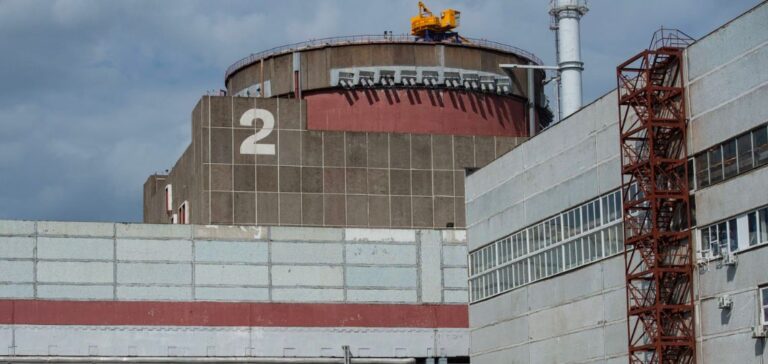Ukraine’s Zaporizhia nuclear power plant has lost its last source of external power due to new shelling and is relying on emergency generators, said
on Saturday the International Atomic Energy Agency (IAEA).
The site occupied and then annexed by Russia obtains “the electricity it needs for reactor cooling and other essential nuclear safety and security functions” solely from
diesel generators, the UN agency added in a statement.
“The connection was cut off at about 1 a.m. local time,” said the IAEA, which said it was basing itself on “official information from Ukraine” as well as on “reports from its team” of four experts present at Europe’s largest nuclear power plant.
“The resumption of bombing, hitting the only external source of energy of the plant, is totally irresponsible,” reacted IAEA Director General Rafael Grossi.
“I will soon go to Russia and then back to Ukraine to agree on a protection and nuclear safety zone around the plant. This is an absolute and urgent imperative,” he insisted.
At dawn, Ukrainian operator Energoatom wrote on Telegram that “the last connection line was damaged and disconnected” due to Russian shelling.
The Russian Ministry of Defense accused the Ukrainian forces of being behind the bombing.
“In total, Ukrainian troops fired 15 rockets from the locality under their control Marganets in the Dnipropetrovsk region,” he said, confirming the disconnection of the power line.
“Emergency diesel generators are used to ensure the operation of the nuclear power plant,” the Russian military continued, claiming to be conducting repair work.
According to Moscow, the level of radiation at the plant is “normal”.
Although all six reactors are shut down, they still require electricity for vital nuclear safety and security functions.
The plant’s diesel generators each have enough fuel for at least ten days.
Rafael Grossi was in Kiev on Thursday to discuss the establishment of a protection zone around the power plant, regularly targeted by gunfire that has already caused several power outages since August and for which the Russians and Ukrainians are mutually responsible.
“We continue to say what needs to be done, which is essentially to avoid a nuclear accident at the plant, which remains a very, very clear possibility,” he had argued.






















